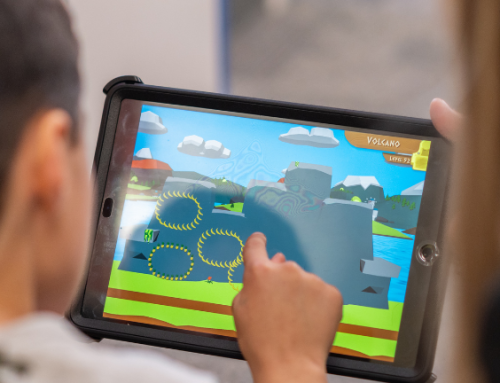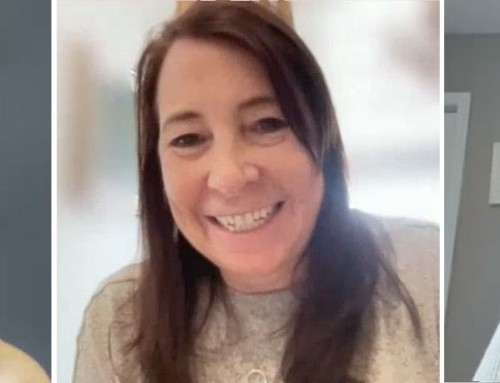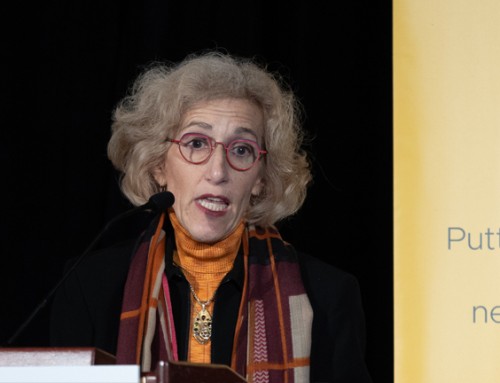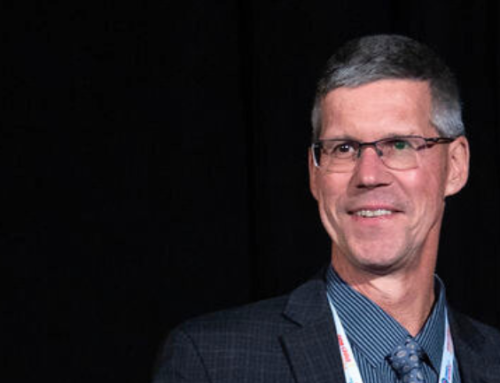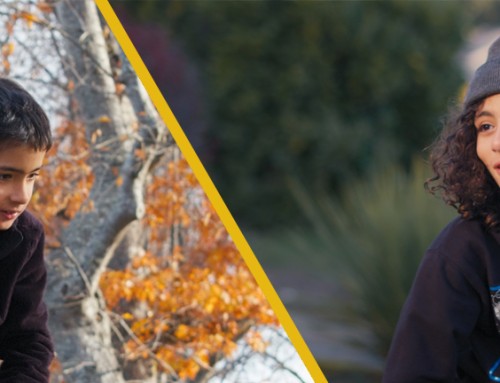To make neurodevelopmental research as beneficial as possible, investigators and families need to team up as partners. An online course is helping them learn how.
When Kristina McGuire’s son, Sam, was born with a heart defect called hypoplastic left heart syndrome (HLHS), she felt she had a lot to learn. Despite her experience as a nurse in a neonatal intensive care unit, she wasn’t yet comfortable with his complex needs. “We didn’t have the critically ill babies [in my NICU], so I’d never dealt with that before,” she says. “I felt I needed to step up my game.”
Sam, who has undergone five open-heart surgeries, spent much of the first year of his life in hospital with his family. “I spent a lot of that time finding out what HLHS was and what we could expect for kids like Sam,” McGuire says.
Wanting to make sure the decisions she was taking for her child were based in evidence, McGuire grew interested in consulting scientific research—and eventually, in helping to generate it. So, when her eldest daughter Kate was diagnosed with autism spectrum disorder at age eight, McGuire looked for ways to add to the body of knowledge about that condition, especially the lesser-known ways it shows in girls.
Still, much of the experience she’d gained from parenting her kids remained untapped. So in 2019, to get a better understanding of researcher’s perspectives and how she could deepen her contributions to their work, she enrolled in a 10-week web-based course called Family Engagement in Research (FER).
Certified by McMaster University and sponsored primarily by Kids Brain Health Network, FER brings parents and researchers together to learn from each other about how to maximize a productive partnership. By doing so, it aims to shape the future of Canadian neurodevelopmental research, anchoring it in the real-life needs of children and their families.
The questions that matter the most to families
So far, 130 people have completed and benefitted from the course, which runs twice a year free of charge and features discussions, case-study reviews and team projects. One of its key themes is the importance of meaningful family-researcher partnership, as opposed to mere tokenism. “What it reinforced for me was that parents could be involved at all stages of research,” says Genevieve Currie, a Calgary-based researcher who graduated from FER in 2020. “I’m not just going to put a tick in a box because you’re here and I have a grant that requires a parent. You shouldn’t be just an add-on to the team: you can provide input about what the research question should be to start with, for example.”
Currie is a university nursing professor and the mother of 14-year-old twin boys, one of whom has Prader-Willi syndrome. This rare disorder affects both the body and the brain. “Research about this condition typically looks at its biological makeup and which chromosome it affects,” she says. “Sometimes it looks at typical symptoms but not necessarily how to manage those symptoms and their impact on the family. It’s the day-to-day behaviours that are way more difficult for parents.” This research gap—an example of the fact that investigators don’t always pay attention to the questions that matter the most to families—has steered and motivated Currie’s academic career.
Her son, for example, has hyperphagia, which means he constantly feels hungry. “He is always searching for food,” Currie says. “He’ll take others’ food. He isn’t safe in most public settings because food is everywhere. He also has high anxiety and worries about his next meal and his meal in two days. Although researchers often look into the biology of hyperphagia, there is no cure or medication in the foreseeable future. Meanwhile, the behaviours associated with hyperphagia [and other aspects of Prader-Willi syndrome] can be overwhelming for the child and their family. There are few supports available and few researchers documenting what might be helpful”
Informing research questions isn’t the only invaluable contribution parents can make: other contributions can include recruiting study participants, identifying potential barriers to participation (e.g. childcare; disability-friendly parking; renumeration for parking) and helping to disseminate results—not only to the scientific community but also to the families who could actually benefit from the new learnings, using understandable language.
The other half of the equation
To McGuire as a parent, the idea of partnering in research sounded commonsensical. “It blows my mind that it’s a newer concept for researchers,” she says. “To me, it seems natural that if you’re studying someone with the aim of helping them, then you should have them making sure you’re studying the right things, with the right approach.”
Other parts of the course’s syllabus were new to McGuire, though. “I learned about the other half of the equation: the researchers’ world and what they have to go through in terms of applying for grants, ethics approval and so on,” she says. “It was empowering because now I know what a good relationship with researchers looks like.” Among other involvements, she is currently a patient advisor for the Maternal Newborn Child & Youth Strategic Clinical Network, which aims to improve outcomes for children and expectant mothers across Alberta. “I’m on committees that consider research projects that are looking for financial assistance,” she says. “Having been on the other side of the bed as a family member of those frequently accessing the healthcare system has allowed me to identify where the gaps may lie.”
For her part, Currie felt validated by FER. “I once did a study about the experiences of parents of children with rare neurodevelopmental disorders in relation to medical and social supports,” she says. “And people were like, ‘Is it okay that you’re doing this? Because you’re a parent [of an affected child] yourself: is that weird?’ The course gave me the confidence to say, ‘Yes! I’m a parent-researcher.’ We all have a bias and mine can serve a purpose.”
“What I learned, too, was that the research team often needs the parent voice,” Currie adds. “And parents need to be able to share their information, expertise, priorities and perspectives.”
If you’re a parent, self-advocate, trainee or researcher, the Family Engagement in Research course welcomes your participation.
By Aleisha Fernandez and Samantha Rideout



